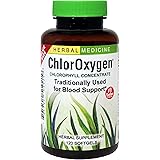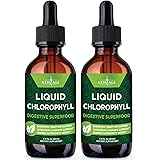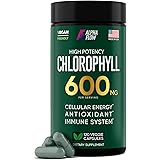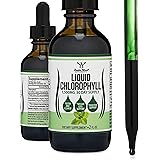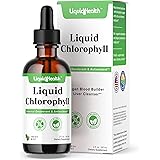Have you ever paused to consider the profound physiological shifts that occur when you make a conscious decision to give your body a break from alcohol? As the accompanying video highlights, even a short period of abstinence can initiate a remarkable healing process. Specifically, what would happen if you truly stopped drinking alcohol for 14 days? The answer lies primarily within the incredible resilience and reparative capacity of the human liver.
The Liver’s Resilience: A Fortnight of Recovery
The liver, often likened to the body’s central processing unit, performs over 500 vital functions. Its robust nature means it possesses an extraordinary ability to regenerate and repair itself, a characteristic unparalleled by most other organs. When an individual stops drinking alcohol for 14 days, this complex organ begins an immediate and tangible journey of revitalization, shedding the burdens imposed by chronic alcohol exposure. This two-week period acts as a crucial “system reset,” allowing the liver to pivot from detoxification mode to repair and optimization.
The Mechanism of Hepatic Repair: What Changes in 14 Days?
Upon alcohol cessation, the liver’s primary focus shifts from metabolizing ethanol and its toxic byproducts, such as acetaldehyde, to mending cellular damage. This metabolic recalibration is swift. Consequently, the enzymatic pathways previously overwhelmed by alcohol processing become available for their intended roles, fostering a more efficient internal environment. The body can then allocate more resources towards restoring cellular integrity and improving metabolic efficiency, rather than continuously battling exogenous toxins.
Inflammation and Scar Tissue: Reversing the Tide
Alcohol is a potent pro-inflammatory agent, and its consumption typically leads to widespread inflammation, particularly within the hepatic parenchyma. When you stop drinking alcohol for 14 days, the systemic inflammatory response begins to subside dramatically. This reduction in inflammation is critical, as chronic inflammation is a precursor to more severe liver pathologies like fibrosis and cirrhosis.
Furthermore, the diminished inflammatory burden directly contributes to a reduction in the formation of scar tissue. Scar tissue, or fibrosis, is the body’s attempt to repair damage, but excessive scarring can impair liver function. By removing the constant irritant, the liver has an opportunity to not only prevent further scarring but also to initiate a degree of regression in existing fibrous tissue. Think of it like halting a forest fire; the immediate cessation allows the scorched earth to begin its slow, natural process of greening and regrowth.
Fat Accumulation: Mitigating Hepatic Steatosis
One of the most immediate and common consequences of regular alcohol intake is the accumulation of fat within liver cells, a condition known as hepatic steatosis or fatty liver. This is because the liver prioritizes metabolizing alcohol over fats, leading to a backlog. When you stop drinking alcohol for 14 days, the liver’s metabolic machinery can finally focus on processing these accumulated lipids.
Consequently, there is a marked decrease in fat accumulation. This reversal of hepatic steatosis is a significant positive indicator, as fatty liver can progress to more severe forms of liver disease if left unchecked. It’s akin to clearing a clogged drain; once the obstruction is removed, the system can flow freely and effectively again.
Hormonal Harmony: The Liver’s Endocrine Influence
The liver is not merely a filter; it is an endocrine organ, playing a pivotal role in hormone metabolism and activation. Specifically, it is crucial for converting inactive thyroid hormones (T4) into their active form (T3), which regulates metabolism, energy, and mood. Alcohol interferes with this conversion, often leading to subclinical hypothyroidism symptoms even in individuals with normal thyroid gland function.
Moreover, the liver is instrumental in activating Growth Hormone (GH), a key anabolic hormone responsible for cell growth, reproduction, and repair, including fat burning. When you stop drinking alcohol for 14 days, the liver’s capacity to perform these critical hormonal conversions is significantly restored. This improved hormonal milieu contributes to enhanced energy levels, better mood stability, and more efficient fat metabolism, making it easier for the body to utilize fat stores for energy.
Beyond Detoxification: Blood Production and Overall Vitality
While often highlighted for its detoxification capabilities, the liver also plays an indispensable role in hematopoiesis, the process of blood cell formation, particularly during fetal development and in certain adult conditions. It produces essential clotting factors and proteins vital for blood health. Alcohol can impair the liver’s ability to synthesize these crucial components, potentially leading to issues with blood clotting and overall blood quality.
Furthermore, the liver is central to synthesizing albumin, a protein critical for maintaining oncotic pressure and transporting hormones, drugs, and other substances in the blood. By abstaining from alcohol for a mere two weeks, the liver can dedicate its resources to these fundamental physiological processes. This holistic improvement in liver function radiates outwards, affecting everything from nutrient assimilation to immune response, underscoring the body’s remarkable capacity to bounce back when alcohol consumption is halted.
The Cascade Effect: Broader Health Implications of 14 Days Alcohol Free
The benefits of having stopped drinking alcohol for 14 days extend far beyond the liver itself. Improved hepatic function leads to a cascade of positive effects throughout the entire physiological system. Better detoxification means fewer circulating toxins, leading to clearer skin, enhanced cognitive function, and improved sleep quality. Stabilized blood sugar levels, a common benefit, can reduce cravings and energy crashes.
Metabolic efficiency improves, often resulting in natural weight management. The body’s ability to fight off infections is bolstered due to a less burdened immune system. This period of abstinence serves as a powerful testament to the body’s innate drive towards homeostasis and healing, revealing that even a brief respite from alcohol can unlock significant, tangible health advantages and set the stage for sustained well-being.


